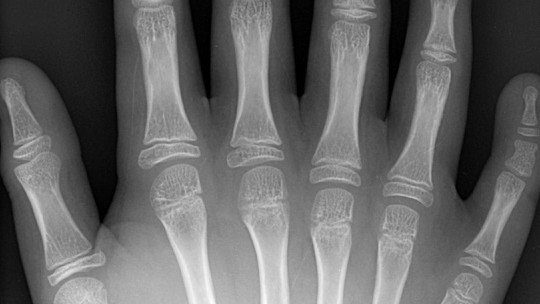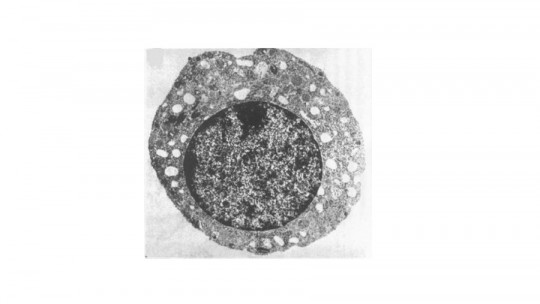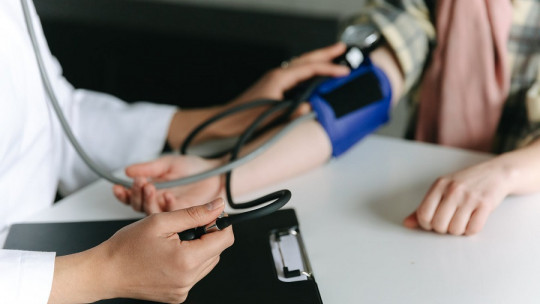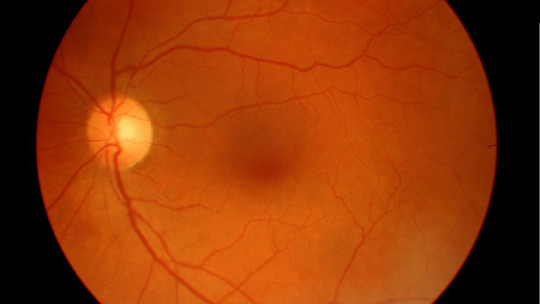
Obesity hypoventilation syndrome is a medical condition associated, as its name suggests, with advanced overweight The person who suffers from it has difficulty breathing during the day, causing problems sleeping at night.
It is a disease that affects many people with obesity, therefore, a key aspect to avoid and treat it is weight loss through exercise and a good diet, although surgery and the use of air masks may also be necessary. .
Below we will talk in more depth about this respiratory disease, its main symptoms, what exams and physical tests are done to diagnose it and how it is treated.
What is obesity hypoventilation syndrome?
Obesity hypoventilation syndrome is a respiratory disease that people with obesity can present. Because they are overweight, they cannot breathe properly during the day or at night seeing their health and mood affected.
During the day, their poor breathing causes their blood oxygen levels to be low and carbon dioxide levels to be high, this being known as daytime hypoventilation.
At night they also cannot breathe well, which means that they do not enjoy a restful sleep or rest properly. What’s more, their breathing difficulties are made even worse because they may suffer from obstructive sleep apnea. This causes them to stop breathing for short periods of time, preventing the brain from getting the oxygen it needs to function properly.
Hypoventilation syndrome due to obesity It has also been called Pickwick syndrome The reason for this is quite curious, and is related to the famous British writer and novelist Charles Dickens, who describes in his essay The Pickwick Club Posthumous Papers symptoms very similar to those related to the syndrome.
Symptoms
As we have mentioned, obesity hypoventilation syndrome is a condition associated with obesity that causes respiratory problems both day and night. Among the main symptoms we have the abnormal levels of oxygen and carbon dioxide in the blood, being lower and higher, respectively This medical condition is called chronic hypoxia.
As people who suffer from this syndrome cannot sleep properly, having poor quality sleep at night, when they wake up they suffer from daytime sleepiness. This causes them to have a great lack of energy and feel tired when making the slightest effort. They may also suffer headaches associated with irregular blood gas levels and poor rest.
While sleeping, your breathing may stop momentarily; In addition, they can snore very loudly These two symptoms are not detected by the patient himself, but they are detected by the people who live with him, such as his partner or roommates. Although it does not necessarily have to affect the patient’s social life, snoring very loudly can make it difficult for others to sleep, causing a problem in the coexistence of the domestic unit.
But not everything has to do with breathing. By not being able to sleep well for a long time, the patient’s mood is affected, and they may present problems such as depression, irritation and agitation. Because he suffers from drowsiness, he is more prone to accidents, both at work and at home. This can also affect the patient’s sexual life since he has less desire to have sex and prefers to sleep, although he knows that he will not be able to rest completely.
Causes of hypoventilation due to obesity
Not all the causes of obesity hypoventilation syndrome are known, although as its name indicates, obesity plays a very important role in the severity and development of this medical condition.
It may be a combination of several health problems including the inability of the brain to correctly manage breathing, excess body fat that produces hormones that alter respiratory rate, and additional weight against the chest wall, making it difficult for the breathing muscles to work.
Diagnosis
In order to properly diagnose this medical condition, it is necessary to perform a series of tests and physical examinations. Additionally, you will be asked about any medical problems that you and those closest to you have noticed, such as tiredness, snoring, and apnea while sleeping.
The first thing to do is evaluate the patient’s physical condition, starting with your body mass index (BMI). If the patient has a BMI greater than 30, it will mean that he suffers from obesity.
In addition to this, they will look Other physical signs that are associated with hypoventilation due to obesity among which we have:
In order to diagnose this medical condition, it is necessary to evaluate blood gas levels, specifically oxygen and carbon dioxide. For this An arterial blood gas is usually done, taking blood samples from the patient, usually taken from your wrist, and checking your gas levels. A pulse oximeter, a sensor placed on the finger that measures the amount of oxygen in the blood, can also be used, although it is not as accurate as an arterial blood sample.
A chest x-ray or CT scan of the same area is necessary to rule out other possible physical causes that explain the patient’s respiratory problems. An echocardiogram is also usually performed in which an ultrasound of the heart is done to see how this organ behaves.
Finally, one of the tests that cannot be missed to diagnose obesity hypoventilation syndrome is polysomnography, that is, a sleep study It is a technique that allows us to know if the patient suffers from sleep apnea, its severity, and guide the most appropriate treatment for the case.
Treatment
In the treatment of hypoventilation syndrome due to obesity A weight loss program is usually applied accompanied by therapy focused on the respiratory disease
Sometimes, the simple fact of losing a little weight causes the person to improve significantly, snoring less and having a more restful sleep, in addition to being able to breathe better during the day and, in many cases, correcting obstructive sleep apnea. In other cases, surgical intervention is necessary by performing a gastric bypass in which the size of the stomach is reduced and the patient eats less.
To get the patient to lose weight, what is usually done is to give them a program in which they are presented with a menu with restricted calories, in addition to presenting them with foods that satisfy their nutritional needs but losing weight. Many diets focus on protein and vegetables, since it is these two types of foods that contribute to a fuller stomach with less caloric intake. In addition, proteins help generate muscle, altering the patient’s body composition and reducing the production of hormones associated with fats.
To help the patient control their cravings for food, it is recommended that they have good sleep hygiene, going to sleep between 10 and 12 at night. While it’s true that your sleep quality is poor, going to bed at a good time will reduce your chances of feeling tired the next day. People who wake up in a bad mood and exhausted tend to counteract their fatigue by eating more, something that would be very counterproductive in the treatment of this syndrome.
Air masks are usually used to treat respiratory failure, that is, positive pressure support in the airway. These masks administer constant air at a certain pressure, allowing the patient to inhale and exhale in a healthy way. By being able to breathe better at night, you have better rest and your blood oxygen and carbon dioxide levels normalize.








